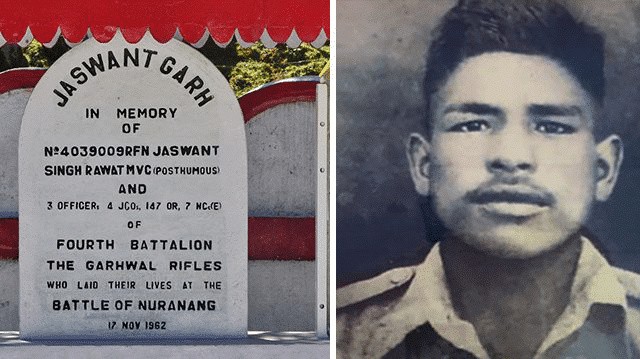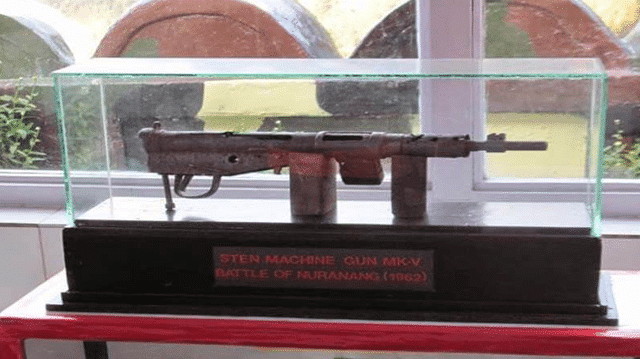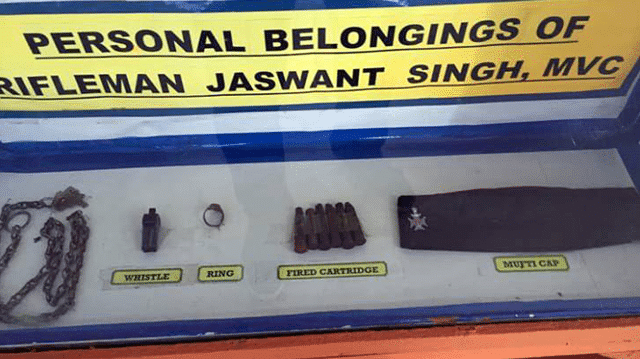Based on the true events of the 1962 Indo-China war, 72 Hours, is a war movie directed and written by Avinash Dhyani. The movie also brings back to life the story of one special 22-year-old soldier, Rifleman Jaswant Singh Rawat, who along with two other soldiers, held his post for 72 hours, 21 km from Sela Pass near Tawang and killed 300 Chinese soldiers. The film is set to release on January 18, this year.
Interestingly, even after over half a century of his untimely demise, the Indian Army continues to treat Jaswant Singh Rawat as a serving officer. He still gets regular promotions as the army believes the brave rifleman still guards India’s eastern border.
Jaswant Singh Rawat’s story is a story of exemplary courage and patriotism.

He was born on August 19, 1941, to Shri Guman Singh Rawat in the village of Baryun in Uttarakhand. One of the brave men this country has ever seen, Jaswant Singh fought against 300 soldiers all by himself to save Arunachal Pradesh from the Chinese.
Battle of Nuranang – the Indo-Chinese war started on November 17, 1962, and continued for the next 72 hours as the Chinese Army tried to invade Arunachal Pradesh. In their 4th attempt to capture Arunachal Pradesh, the Chinese troops were dressed like the local monpas and used Sela top to infiltrate the state. They also managed to move MMG (Medium Machine Gun) close to where 4 Garhwal were deployed, which resulted in a tremendous cross-firing. Among the 4 Garhwal, one was Jaswant Singh.

Jaswant Singh Rawat was serving in the 4th battalion of Garhwal Rifles in the North-East Frontier Agency (now Arunachal Pradesh) and won the Maha Vir Chakra (second highest military decoration in India) posthumously because of his brave actions during the Sino-Indian War in 1962.
Even though the Indian Army’s reinforcements arrived, in the end, to stop the Chinese from entering Arunachal Pradesh, Chinese soldiers managed to capture heavily wounded Jaswant Singh and hanged him.
A spot where he was martyred, a hut has been constructed. It houses a bed, his shoes, which are maintained by five army jawans posted at the post. Even today, people write letters as his well-wishers for his brave act to save this country from the Chinese intruders. Locals have also constructed a Buddhist temple at the same spot and he is seen as more of a God than a mortal being.

The locals have a different version of the death of this martyr. They believe that Jaswant Singh remained at his post at an altitude of 10,000 ft, along with the help of two local Monpa girls Sela and Nura, who worked as porters who succeeded in setting up weapons at different spots making the Chinese believe that not one man but they were about to face an entire battalion. While Sela died in a grenade attack and Nura was captured by the enemy soldiers. Singh sensed that his fate will be no different and he will also end up being captured, Jaswant shot himself with the last bullet.

